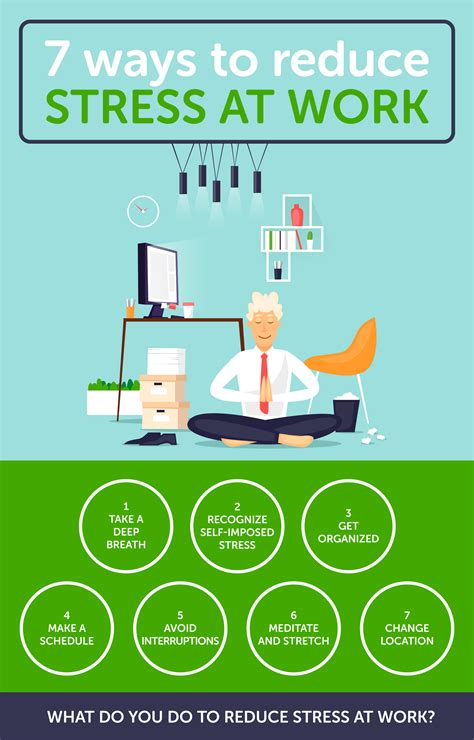Workplace stress is a major concern for many people, with 85% of workers reporting experiencing stress on the job. This can lead to a number of health problems, including anxiety, depression, and insomnia. It can also reduce productivity and job satisfaction.

There are a number of things you can do to manage stress in the workplace. Here are 10 tips:
- Identify your stressors. The first step to managing stress is to identify what’s causing it. Once you know what’s stressing you out, you can start to develop strategies to deal with it.
- Talk to someone. Talking to a friend, family member, or therapist can help you to process your stress and develop coping mechanisms.
- Take breaks. When you’re feeling stressed, it’s important to take breaks throughout the day. Get up and move around, or step outside for some fresh air.
- Exercise. Exercise is a great way to reduce stress and improve your mood. Aim for at least 30 minutes of moderate-intensity exercise most days of the week.
- Get enough sleep. When you’re well-rested, you’re better able to cope with stress. Aim for 7-8 hours of sleep each night.
- Eat healthy foods. Eating a healthy diet can help to improve your overall health and well-being. Avoid processed foods, sugary drinks, and excessive amounts of caffeine.
- Practice relaxation techniques. There are a number of relaxation techniques that can help to reduce stress, such as yoga, meditation, and deep breathing.
- Set boundaries. It’s important to set boundaries between your work and personal life. Avoid checking work email or taking calls outside of work hours.
- Learn to say no. It’s okay to say no to additional work or commitments when you’re feeling overwhelmed.
- Seek professional help. If you’re struggling to manage stress on your own, don’t hesitate to seek professional help. A therapist can help you to develop coping mechanisms and manage stress more effectively.
Common Mistakes to Avoid
When it comes to managing stress, there are a few common mistakes that you should avoid:
- Ignoring your stress. Stress is a normal part of life, but it’s important to not ignore it. If you’re feeling stressed, take steps to address it.
- Trying to do too much. When you’re feeling stressed, it’s important to take breaks and delegate tasks. Trying to do too much will only make things worse.
- Using unhealthy coping mechanisms. Using alcohol, drugs, or other unhealthy coping mechanisms to deal with stress will only make things worse in the long run.
- Not seeking professional help. If you’re struggling to manage stress on your own, don’t hesitate to seek professional help. A therapist can help you to develop coping mechanisms and manage stress more effectively.
By following these tips, you can effectively manage stress in the workplace and improve your overall health and well-being.
Table 1: Common Sources of Stress in the Workplace
| Source of Stress | Percentage of Workers Reporting |
|---|---|
| Workload | 65% |
| Deadlines | 45% |
| Workplace relationships | 25% |
| Job insecurity | 20% |
| Lack of control | 15% |
Table 2: Health Effects of Workplace Stress
| Health Effect | Percentage of Workers Reporting |
|---|---|
| Anxiety | 50% |
| Depression | 30% |
| Insomnia | 25% |
| Headaches | 20% |
| Fatigue | 15% |
Table 3: Benefits of Managing Workplace Stress
| Benefit | Impact |
|---|---|
| Improved physical health | Reduced risk of heart disease, stroke, and other health problems |
| Improved mental health | Reduced risk of anxiety, depression, and other mental health problems |
| Improved job performance | Increased productivity, creativity, and job satisfaction |
| Improved relationships | Reduced conflict and improved communication with同事s |
| Reduced absenteeism and turnover | Less time off work and lower turnover rates |
Table 4: Questions to Ask Yourself to Identify Workplace Stressors
| Question | |
|---|---|
| What are the most stressful aspects of my job? | |
| What are the specific tasks or situations that trigger my stress? | |
| What are the people or things that make my work environment stressful? | |
| How does stress affect my physical and mental health? | |
| How does stress affect my job performance? |
















